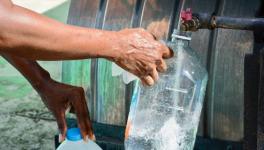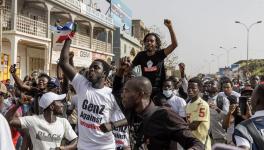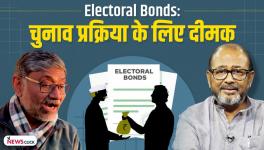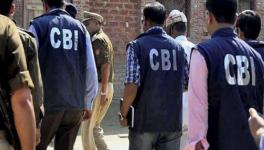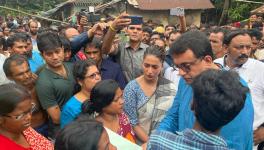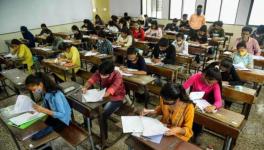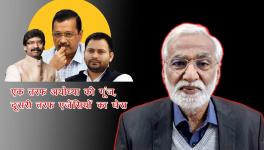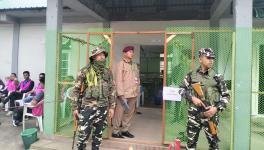Puerto Rican Statehood Wins at the Polls
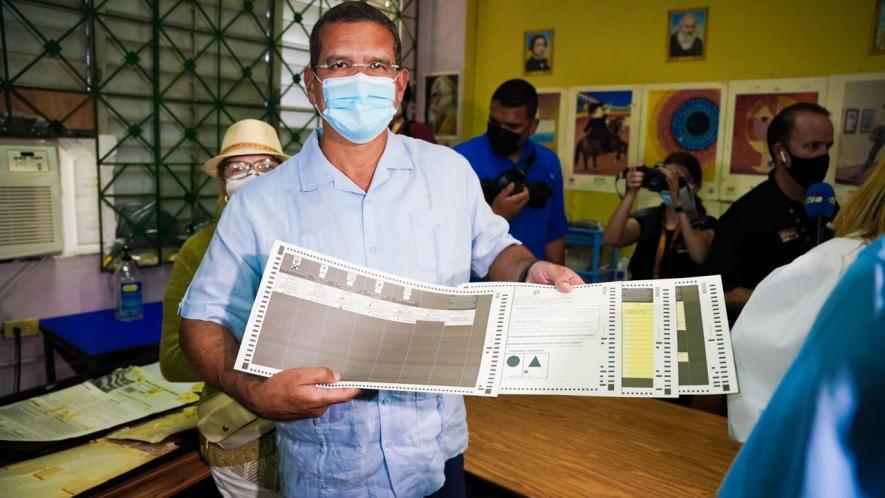
Pedro Pierluisi of the right-wing New Progressive Party (PNP) casts his vote. He is leading the gubernatorial race in Puerto Rico with a narrow margin of less than 1% of the votes with 91% of the votes counted. Photo: Pedro Pierluisi twitter
Parallel to the presidential elections in the United States, Puerto Rico, a Caribbean island and an unincorporated US territory, held gubernatorial elections and a referendum for statehood on November 3.
With 95% of the votes counted, Pedro Pierluisi of the pro-statehood New Progressive Party (PNP) is holding a narrow lead in the gubernatorial race with 32.4% of the votes. In second place is Carlos Delgado of the Popular Democratic Party (PPD), which supports the current territorial status, with 31% of the votes.
Despite the narrow margin of less than 1% of the votes, Pierluisi celebrated his victory late night yesterday, while Delgado said that he would await the final results. In total, 5 candidates competed for the position of the governor.
Meanwhile, Aníbal Acevedo Vila of the PPD, conceded his defeat in the race for the island’s resident commissioner in the US House of Representatives, against Jenniffer González of the PNP, who won the elections and was re-elected as Puerto Rico’s representative in the US congress for a second four-year term. Acevedo Vila obtained 32% of the votes, while González secured 40% of the votes.
Regarding the referendum for statehood, in which Puerto Ricans were asked if they want the island to become a state of the US or to continue as a territory with self-government, the option YES for statehood is leading with 52% of the votes with 95% of the votes counted.
If the option YES wins, the governor of Puerto Rico will appoint a seven-person commission to represent the island in statehood negotiations. If the governor then accepted the plan, it would be presented to the US Congress and the president. If Puerto Ricans vote against statehood, a similar commission will be created to negotiate Puerto Rica’s independence or free association.
Full statehood for Puerto Rico would allow its residents constitutional rights that they do not have: the ability to vote in the US presidential and congressional elections. A freely associated state is an independent nation that signs a Compact of Free Association, an agreement with the US concerning military, economic, and diplomatic relations.
Over 2.3 million Puerto Ricans were eligible to vote in the polls. The voter turnout was reported to be quite high. Citizens waited for hours in lines outside the polling stations to cast their vote.
The elections were the first since the massive protests of July 2019, which forced Governor Ricardo Rosselló of the PNP to resign. The social protests were sparked by a leaked group chat in which Rosselló and other officials made fun of the victims of Hurricane Maria, among other things. Some of the comments made led to an investigation into possible corruption of $15 million dollars in education and health funds.
Courtesy: Peoples Dispatch
Get the latest reports & analysis with people's perspective on Protests, movements & deep analytical videos, discussions of the current affairs in your Telegram app. Subscribe to NewsClick's Telegram channel & get Real-Time updates on stories, as they get published on our website.










